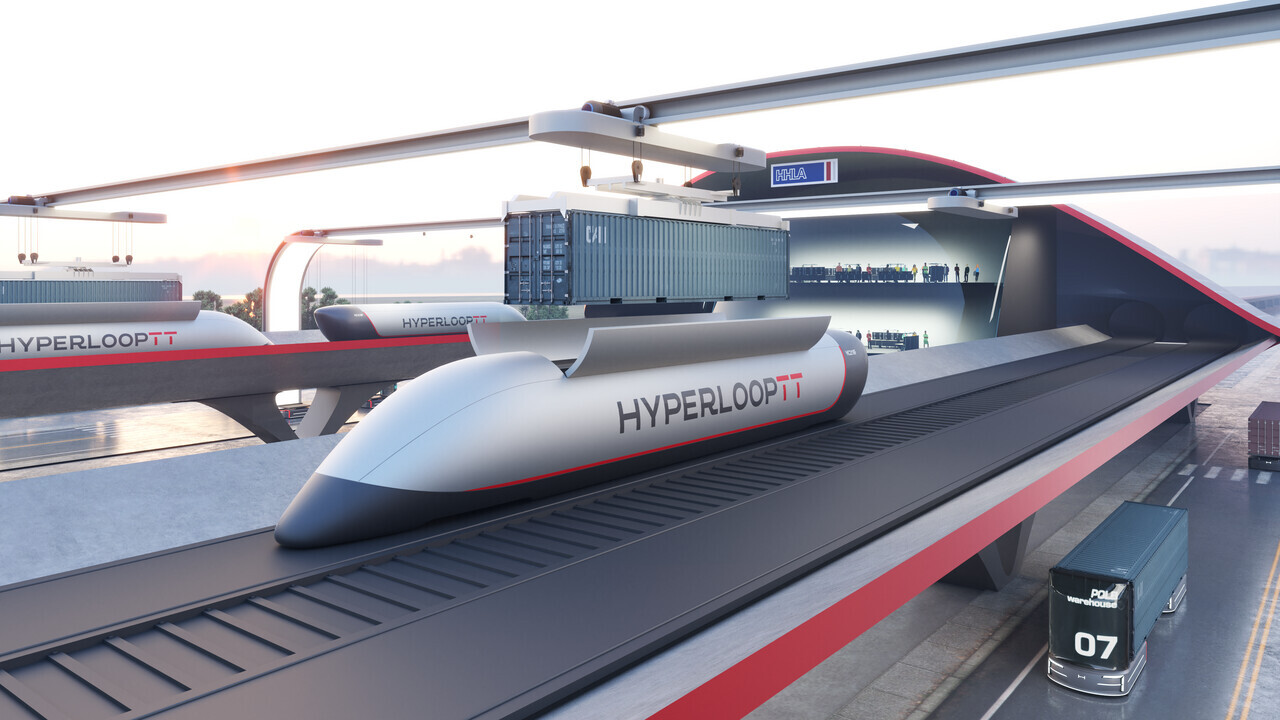
As I’ve said before, if you want to ride a hyperloop, you’ll be waiting a while. These things happen slowly. Which is not so much a bad thing when you think about hurtling through a windowless tube at high speeds. But this week saw the hyperloop reality get a hell of a lot more real. Hardt Hyperloop raised a tonne of cash from the European Commission. This is the first grant for hyperloop tech from the EC.
Ok, $15 million isn’t all that much when we’re talking about creating an entirely new mode of transport. But it’s a clear acknowledgment by the European Commission that hyperloop is a sustainable means of transport. The idea actually has legs – or in this case, tubes.
Hardt hyperloop as green mobility
It’s all part of a bigger mission of sustainability underpinned by the European Green Deal, which mentions hyperloop as a form of sustainable and smart mobility.
Hyperloop vehicles move autonomously through low-pressure tubes. Electromagnetic propulsion makes travel energy-efficient and completely CO2-neutral. The hyperloop thus responds to the growing demand for a sustainable solution to (high-speed) transport for both people and goods.
As I’ve mentioned before, Hardt has been instrumental in laying the groundwork for hyperloop transportation to become a reality in Europe. The company helped spearhead development of the European Hyperloop Center (EHC) in 2020. The EHC plans to open a 2.7km test track with a cargo-scale tube suitable for speeds up to 700kmph to test hyperloop technologies in 2023.
Wow, companies are finally starting to work together
Earlier this month the European Rail Infrastructure Mangers (EIM) signed an agreement with the seven largest hyperloop players. It supports the integration of hyperloop and rail systems in Europe. It’s an opportunity for companies including Hardt, HyperloopTT, Nevomo, Swisspod Technologies, TransPod, Virgin Hyperloop, and Zeleros to exchange information and best practices with the EIM and identify potential innovation drivers.
Hyperloop companies desperately need some hype – heck, any PR will do

You’ve probably seen simulated drawings, CGI videos, and (pre-pandemic) models at mobility tradeshows. The reality is that hyperloop progress is so slow that it struggles to remain relevant to the public. Last month a Morning Consult survey of about 1550 people in the US found that 70% of those surveyed said they had heard “nothing at all” about hyperloop. This is despite years of public efforts touting the mass transportation technology from companies such as Virgin Hyperloop and Elon Musk’s The Boring Company.
These companies are struggling to remain relevant. Delft even offers to appear at your event like a clown at a birthday party.
Reluctant passengers
Researchers provided respondents with detailed information about hyperloop’s potential capabilities. Still, only 57% expressed interest in using the transportation when it becomes available. 78% of respondents raised safety concerns, while 73% questioned its reliability. Curiously, there was no mention of the use of hyperloop for transporting cargo, which I believe will occur far earlier than any large-scale commercial efforts to transport people.
Its environmental benefits are consistently failing to filter down: 62% of respondents said they’re worried about the environmental impact of its construction. Additionally, 60% raised concerns about how its operations will impact the environment overall.
Not surprisingly, only about 40 percent of survey respondents want to allocate any government funds to hyperloops. 73% prioritize spending on fixing roads and bridges. Another 68% want the money to go to public transportation such as buses and subways. Companies better hit the PR trail if they want people to ride the thing they’re building.
Get the TNW newsletter
Get the most important tech news in your inbox each week.




